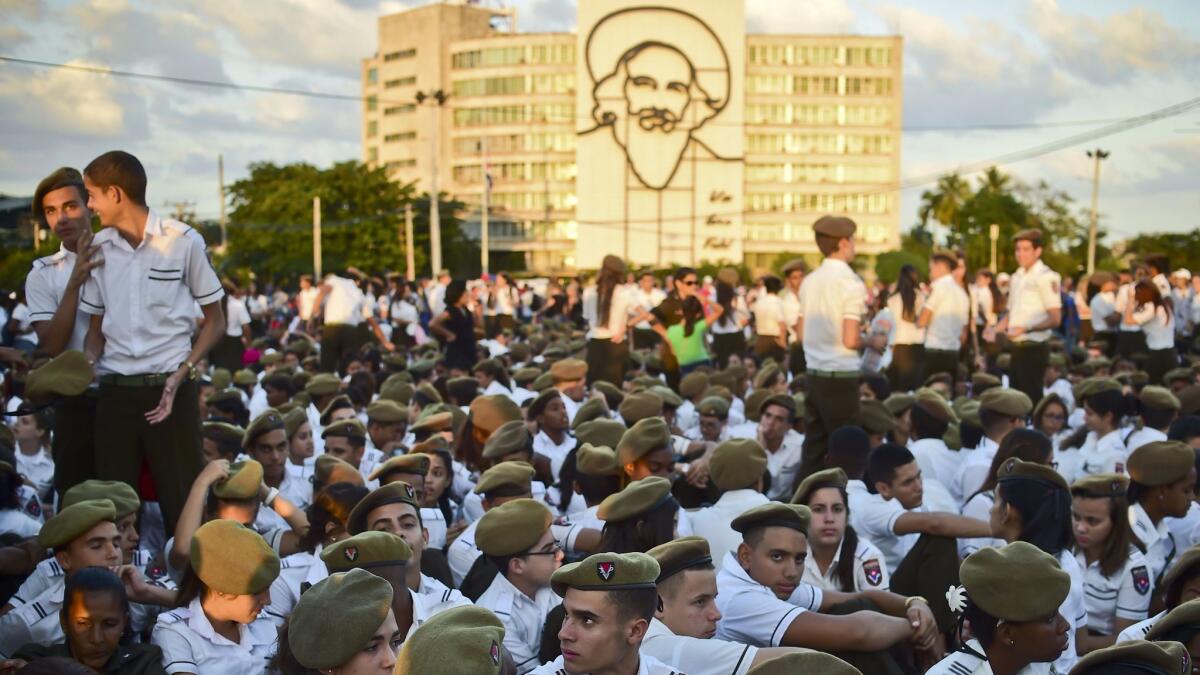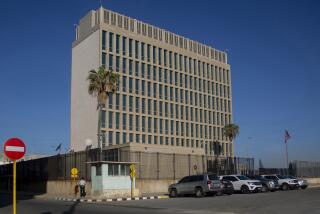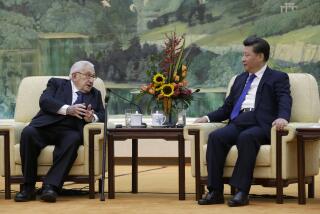Fidel Castro’s divisive legacy is reflected in the guest list at his memorial

Fidel Castro was one of the world’s most polarizing figures, lionized by some as a principled defender of the poor and loathed by others as a repressive dictator.
His divisive legacy can be seen in the guest list of foreign dignitaries attending memorial services for Castro in Havana this week.
Many world leaders are notably absent.
British Prime Minister Theresa May, German Chancellor Angela Merkel and French President Francois Hollande declined to attend Cuba’s elaborate homage to Castro, who ruled the Caribbean island based on Marxist principles for nearly half a century — in part by jailing dissenters.
Also missing was President Obama, who earlier this year met with Castro’s younger brother, Raul, in a historic trip to Cuba aimed at warming relations between the two countries. Obama sent two U.S. officials to the memorial instead.
The list of foreign leaders who decided to attend the memorial in Havana’s Revolution Square speaks to the enduring influence of Castro’s revolution in many post-colonial countries in Latin America and Africa, especially those whose leaders lean toward the ideological left.
Venezuelan President Nicolas Maduro and Bolivian President Evo Morales paid their respects at the square Tuesday along with hundreds of thousands of Cuban mourners. “Cuba is going through a moment of profound shock,” Morales told reporters the evening before. Castro, he said, was “my brother.”
South African President Jacob Zuma, Zimbabwean President Robert Mugabe and Mexican President Enrique Pena Nieto were among the other foreign leaders scheduled to attend.
Russian President Vladimir Putin, whose country was a close Cuban ally during decades of Cold War, did not attend the memorial. Aides said he was preparing for a major speech.
Some foreign leaders found themselves walking a thin line after Castro’s death on Friday. Obama released a delicately worded statement saying Castro’s passing filled Cubans “with powerful emotions,” without saying precisely what those emotions might be.
Canadian Prime Minister Justin Trudeau was less careful, provoking ire among Cubans who fled the Castro regime when he released a statement calling Castro a “remarkable leader” for whom the Cuban people had “a deep and lasting affection.”
“Disgraceful,” said Cuban American Sen. Ted Cruz in a Tweet lambasting Trudeau. “Why do young socialists idolize totalitarian tyrants?”
Trudeau, who apologized for his comments, decided not attend the memorial.
Castro’s death highlighted the intense passions that have dominated the Cuba issue for decades.
While those living on the Caribbean island have been in the midst of a week-long, state-mandated mourning period, with schools and many government offices closed, many Cuban exiles living elsewhere have been celebrating. In Miami, where Cuban Americans marched in the streets the night Castro’s death was reported, an ice cream shop recently announced a new flavor called “Burn in Hell Fidel.”
Twitter: @katelinthicum
ALSO
Fidel Castro’s influence was felt far beyond Cuba
In Havana, Fidel Castro’s passing marks the end of an era
The Cuba where Fidel Castro died is a very different place from the one he ruled for decades
More to Read
Start your day right
Sign up for Essential California for news, features and recommendations from the L.A. Times and beyond in your inbox six days a week.
You may occasionally receive promotional content from the Los Angeles Times.







